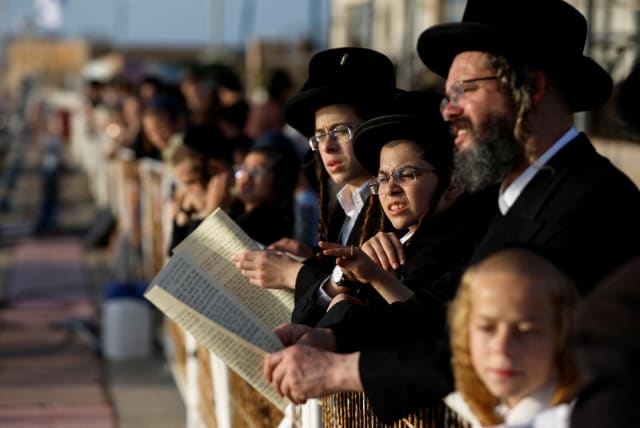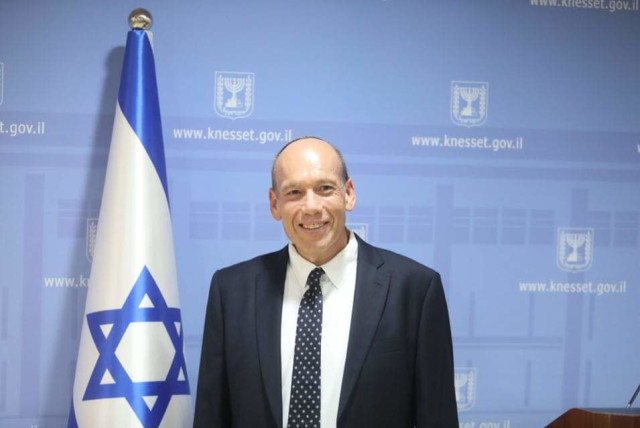Israel needs to allow more building permits to haredi municipalities - comptroller

Of Israel's population, an estimated 9.45 million people, around 1.2 million (or 13%) are considered ultra-orthodox.
Israel hasn’t created enough possibilities for the expansion of existing municipalities with an haredi (ultra-orthodox) majority as well as a lack of grants for building permits, according to Matanyahu Englman, the State Comptroller and Ombudsman of the State of Israel in his report, which was published on Tuesday.
Englman suggested promoting a national project of planning and marketing land geared towards the ultra-orthodox population, as well as urban renewal projects in these municipalities. In addition, it was recommended to reevaluate the financial management of the Religious Councils in Israel, which have accumulated a surplus of approximately NIS 427 million at the end of 2020.
The expected size of the ultra-orthodox population out of the total Israeli population in 2035 is 19%, compared to 13% in 2021, yet according to the State Comptroller report, the rate of granting building permits geared toward this population is only 4%.
How much of Israel's population is ultra-orthodox?
According to the data of the Central Bureau of Statistics (CBS), at the end of 2021, the population of Israel was estimated at about 9.45 million people, of which about 1.2 million people (about 13%) considered themselves ultra-orthodox.
In addition, the report cited data from the National Economic Council in the Prime Minister's Office, stating that between 2006 and 2022 there was a cumulative shortage of about 189,000 housing units for the entire population and this is because the number of units that were built was less than required, according to housing needs.

The State Comptroller audit revealed that following the government's decision, the Ministry of Construction and Israel Land Authority (ILA) actually promoted the submission of land plans and marketing for the ultra-orthodox population during the period that was examined, 2016 till 2021.
However, according to the audit, the scope of planning and marketing was lower than required, in order to meet the housing needs of the ultra-orthodox population in accordance with the housing plans for this group.
According to the data obtained in the audit, the housing plans for the ultra-orthodox population approved from 2017 until 2021 were only about 4% out of about 623,000 units approved for the entire population during that period. An additional issue was the fact that the possibility of expansion in existing ultra-orthodox cities did not result in a significant addition of land for the construction of a community center for the inhabitants.
Englman recommended in his May 2023 report on Tuesday that the Construction and Housing Ministry and the ILA, in cooperation with the Israel Planning Administration (IPA, an independent unit within the Israel Ministry of Interior), promote a national project of planning and marketing land geared towards the ultra-orthodox population in order for this group to “meet its housing needs, in accordance with the goals that will be set, “ Emgelman said, adding that this should happen “while taking into account the housing solutions that are possible and necessary for the entire population as well.”
Englman also recommended that the Israeli Authority for Urban Renewal promote urban renewal among the ultra-orthodox population, in cooperation with the relevant local authorities, “while paying attention to the unique barriers to advancement among this population.”
An additional topic that the report examined was the financial aspects of the activity of the Religious Councils responsible for providing Jewish religious services in Israel. The audit revealed gaps and deficiencies in the level of involvement of the Religious Services Ministry in the financial conduct of the councils, as well as their supervision and control over them. The Religious Services Ministry is the official body that manages the Religious Council across the country. According to the audit, the Religious Councils accumulated a surplus of approximately NIS 427 million at the end of 2020.
The net surplus at the end of 2020 was about NIS 82 million, according to the audit. On the other hand, the budget vs. execution report indicates a decrease in the budget execution rate in 2019-2020. The analysis of the budget execution rates carried out by the State Comptroller's office indicated a large difference between the various Religious Councils, which may indicate “a lower level of service in those councils for residents who need religious services.”
The State Comptroller's office recommended in the audit that the Religious Services Ministry “examine the budgeting of the religious councils, increase its involvement in the financial conduct of the Religious Councils and also their supervision on financial issues.”
“It is also recommended that the ministry set annual and multi-year performance targets, as well as efficiency indicators, and publish them, as well as incentivizing the councils, in order to cause an improvement of the service which they provide to the public,” the audit concluded.
“It is also recommended that the ministry establish guidelines regarding the financial conduct of the religious councils, including, for example, the management of their investments and the prevention of erosion in the real value of the cash in their possession,” the audit added. “It is also suggested that the ministry work to expand public access to the financial information it has about the Religious Councils, including the aggregated financial statements and their analysis.”